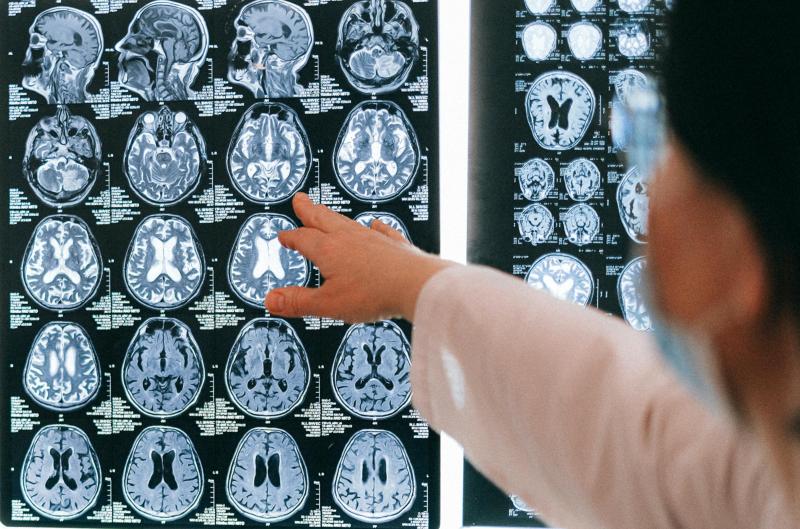ADHD
If hyperactivity, impulsive behaviours and/or concentration problems have a significant impact on your daily life, you might be suffering from ADHD. ADHD stands for Attention Deficit Hyperactivity Disorder.
I still struggle with not letting people finish talking. When I get an idea, I have to express it right away, otherwise it’s gone.

Did you know this?
ADHD occurs in about 5% of the population and affects more men than women. ADHD has its onset in childhood and an estimated 60% of adolescents retain symptoms into adulthood. 50 to 80% of people with ADHD have one or more additional mental disorders. Students with ADHD present an increased risk of substance abuse and addiction, and of risky behaviour.
Not always busy, impulsive and inattentive
People with ADHD can differ greatly from one another. There are three distinct types of ADHD, depending on which symptoms are most prominent:
- hyperactive-impulsive type: presents mainly busy and impulsive behaviour
- predominantly inattentive type: mainly has difficulty in maintaining attention
- combined type: presents both busy and impulsive behaviour as well as difficulty maintaining attention
ADHD finds its onset before the age of 12 and the symptoms evolve with age. While the attention problems often remain the same, the symptoms of hyperactivity and impulsiveness evolve into symptoms of inner restlessness. This manifests itself in, for example:
- difficulties in paying attention to details or maintaining attention, organising tasks and activities, and meeting commitments and deadlines. In addition to high distractibility, moments of hyperfocus may occur.
- difficulties with slowing down, starting and ending activities impulsively, talking a lot, difficulty awaiting your turn, difficulty sitting still, giving inappropriate responses or formulating an answer before finishing a question.
ADHD has great impact on study, planning and time management skills.
Since young people with ADHD - and even adults - are regularly reminded of their typical behavioural pattern, tension in relations might occur, and emotional problems, such as reduced self-confidence and feelings of depression often arise.
Students with ADHD present an increased risk of substance abuse and addiction, and of risky behaviour.
Equipped differently
Various brain areas that play a role in attention processes, planning, inhibition and emotion regulation function differently in people with ADHD:
- For example, some parts of the brain form more slowly during childhood than in other children.
- Also, information between different parts of the brain is processed slightly differently.
The differences are most obvious in children and less pronounced in adults.

I am now sure that I am no worse than anyone else. Just different.
Talk about it
Do you recognise characteristics of ADHD in yourself or do you experience challenges because of your ADHD? An important first step is to talk about it with someone you trust and feel comfortable with. This can bring relief and help you sort things out. You can also take the step towards counselling together.
If you don't feel comfortable talking to someone close to you, try to talk to someone who is familiar with such experiences, for example your general practitioner or someone at the student services of your college or university.

Would you prefer to share your story anonymously? You can always call on Awel (102 or awel.be) or Tele-Onthaal (106 or tele-onthaal.be). If you have questions about suicide, contact the Suicide Hotline (1813 or zelfmoord1813.be).
Seek help
There are no treatments that ‘cure’ ADHD symptoms. Treatment always begins with psychoeducation and can subsequently consist of medication and/or behavioural therapy. Whether or not to start medication or behavioural therapy depends on your age and the severity of your ADHD, among others.
Psychoeducation gives you a better insight into ADHD and its consequences, as well as how you can deal with it. If you have a good understanding of how ADHD works, it is easier to deal with it. Through cognitive behavioural therapy you learn how to respond to problems and how you can gain better control over your behaviour. This can focus, for example, on improving planning and organisational skills or reducing conflicts at home. ADHD medications, such as rilatine, are effective in suppressing certain symptoms of ADHD. They help you concentrate better and be less absent-minded. Discuss this with your GP or a psychiatrist.
As a student with ADHD, you can also receive supportive educational and examination measures, and guidance at your college or university. Read more about this on the disabilities info page. For study problems and emotional issues, you can also get support from a student advisor and/or psychologist.
Worried about a friend?
Have you noticed a friend with ADHD experiencing difficulties? Talk about it and share your concerns. Try to be understanding and to listen without judgement.
Expert talk prof. dr. Dieter Baeyens
Keen to learn, read or hear more about this topic?
Podcasts
- How can you cope with ADHD? (Dutch)
Websites
- Zit Stil - offers scientifically substantiated information for people with ADHD and their network. It also provides practical tools and a lot of training to get started.
- Zorgpad ADHD (Care pathway ADHD) aims to provide an optimal care pathway for children and adolescents (young adults) with busy behaviours and/or attention and concentration problems.
Books and articles
- Roeyers, H. (2015). ADHD: not always hyperactive, impulsive and inattentive. Caleidoscope; 25(5), 32-37.
- Van Hees, V., & Roeyers, H. (2017). Attention! Studying with ADHD.
Powerful stories
You are not alone. Get inspired by other students' stories about vulnerability and doubt. But above all about the power of connectedness.
Go to the stories